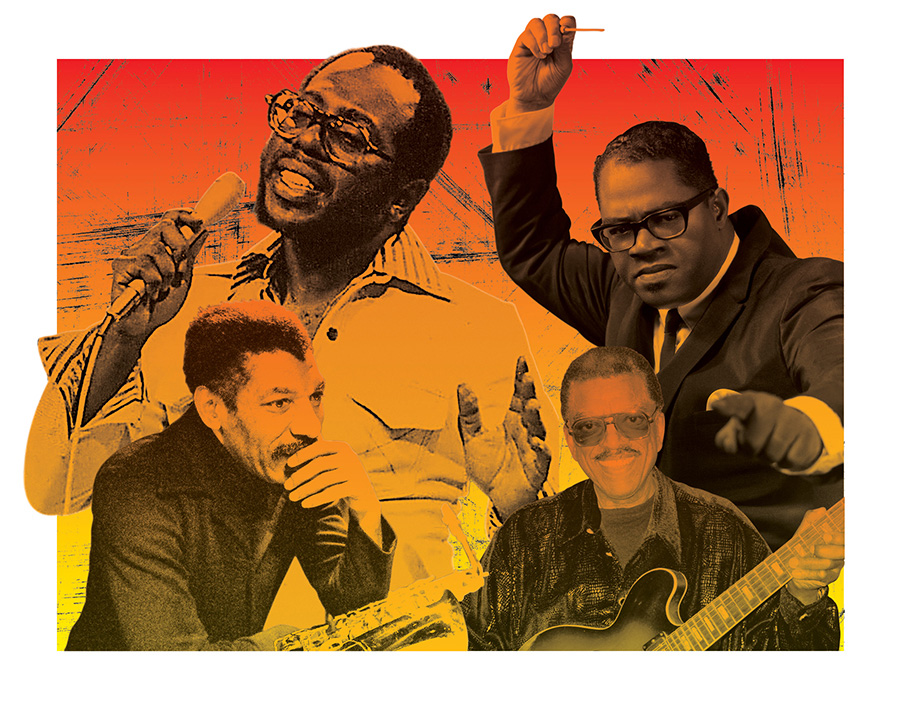
1 Soul provided an avenue for black entrepreneurship.
As the genre’s popularity grew, smaller labels around Chicago flourished. Most famously, singer Curtis Mayfield cofounded Curtom Records with Impressions manager Eddie Thomas and “became his own executive,” Aaron Cohen writes in Move On Up (September 30, University of Chicago Press). With everything from songwriting to distribution handled in-house, artists had more freedom to pursue their own sounds — and they and their local backers saw more of the proceeds.
2 Earth, Wind & Fire can be traced to an unsung hero of musical education.
James Mack, a classical composer and jazz instructor at Crane Junior College (now Malcolm X College), trained a generation of musicians who later shaped the sound of modern R&B. His most recognizable alumni are brothers Maurice and Verdine White of EWF and saxophonist Don Myrick, who was part of the group’s original horn section and later performed with other noted acts (see: his solo on Phil Collins’s “One More Night”). “There is no other school in the city that teaches a student to become a commercial musician,” Mack told the Chicago Tribune in 1965.
3 Harold Washington’s 1983 mayoral win had soul power.
Mayfield and other local musicians, like Syl Johnson and saxophonist Gene “Daddy G” Barge, helped energize voters with free performances at campaign events. Washington’s opponents noticed, and soon a racist flier circulated around town warning that Chicago’s first black mayor would rename the CTA “the Soul Train.”
4 You can draw a straight line from Disco Demolition to the development of house music.
When white baseball fans blew up disco records at Comiskey Park in 1979, labels took the cue and slowed investment in the genre. House blossomed in Chicago “to fill the gap,” as Frankie Knuckles once said. One future house artist, Vince Lawrence, managed to directly translate the traumatic event into a catalyst for his career: An usher at Comiskey that night, he was beaten by a white thug outside the park. He used his settlement money to buy his first synthesizer. He went on to cowrite Jesse Saunders’s 1984 hit “On and On,” generally considered the first commercially released house track.



